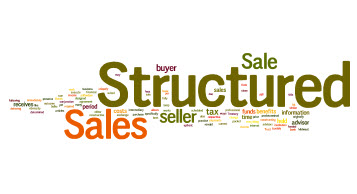What is a Structured Sale and Selling a Business
In its most basic form, a Structured Sale allows the seller of a business to enjoy the benefits of the cash they receive on the sale of their business. That is, there are tax benefits to deferring the receipt of income for a period of time. The seller in conjunction with their professional tax advisor determines this time.
It is typically an exciting time for the owner of a business to close the sale of a business to a buyer and enjoy the rewards from their many years of hard work. Equally, it’s not exciting for the seller to see how much tax they have to pay. A Structured Sale is the solution for the seller of a business. If they also own real estate and are selling it, a Structured Sale can be used to lower the amount of tax the seller has to pay.
In many ways, the Structured Sale works similarly to a 1031 exchange. In a 1031 Exchange, money is not immediately taxable due to an intermediary such as a bank or other financial institution receiving the funds. The funds are then held by Midwest Trust and held in Treasury Bonds, and the seller receives payments per the outcome predetermined by the seller and their tax advisor.
How do you execute a Structured Sale when you are selling a business?
At a simple level, all it requires is an addendum to the current Purchase Agreement. We work with the seller and buyer (there is no change in the purchase price) and the buyer still receives legal title at the close of escrow.
Are there any costs?
There are no out-of-pocket costs or upfront fees to either the seller or buyer when constructing the Structured Sale.
A Structured Sale best suits a transaction when the sale of the business is more than $500,000 and all monies are going to the Seller.
More information?
If you would like some more information about a Structured Sale, the following articles may be of interest to you:


